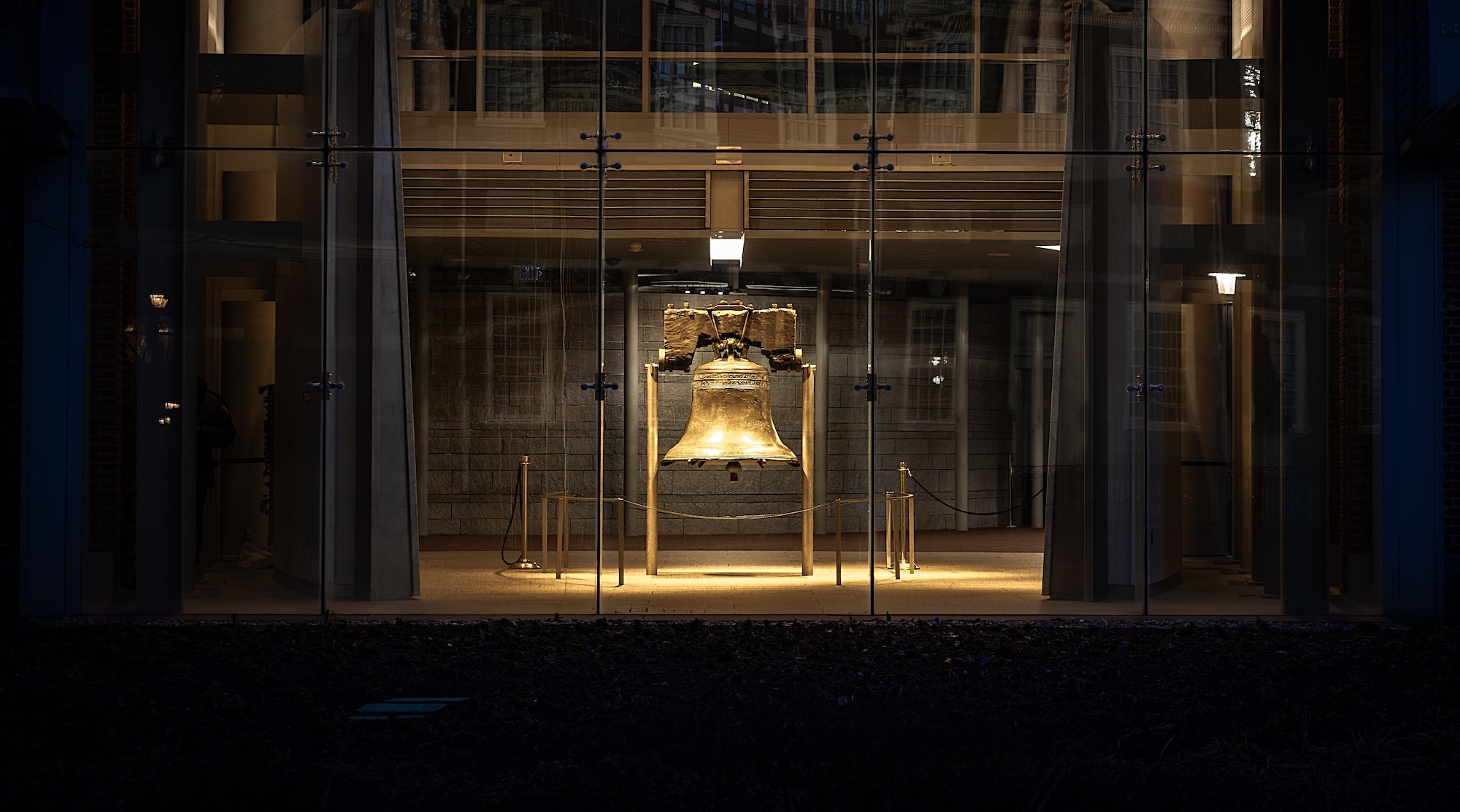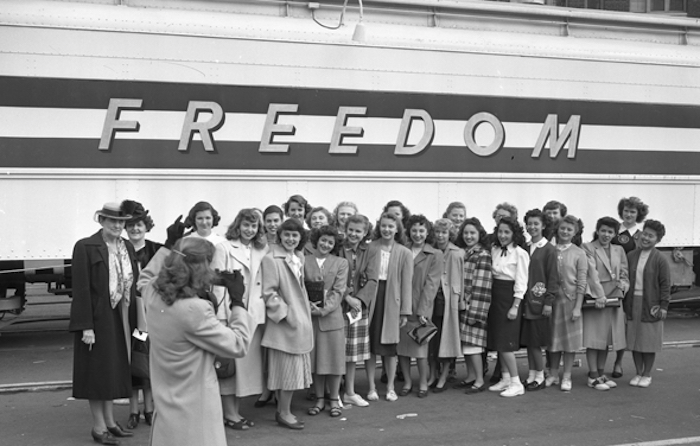
Writing a news organization’s ethics policy in the 2020s is hard. A reporter’s voice used to be heard only after being filtered by editors; now it yammers across Twitter 24/7. An entire troll subculture stands ready to wield any misstep as a weapon against the “mainstream media.” And by pushing previously unthinkable ideas into the mainstream, Donald Trump and his movement transformed what had often been narrow political debates into seemingly existential arguments over democracy or the very nature of America. A lot of reporters just don’t see “Muslims should be banned from entering the country” as a CNN-leaves-it-there subject up for debate in the way that, say, “The child tax credit should be increased” is. These are issues that require nuance that can be hard to codify — harder, at least, than classics like “Don’t take bribes from the mayor.”
So I don’t want to be harsh on the committee of good and thoughtful people who made the latest batch of updates to the ethics policy of public broadcaster NPR. There’s plenty to like about them. Here’s Kelly McBride, longtime Poynter ethicist and NPR public editor:
NPR rolled out a substantial update to its ethics policy earlier this month, expressly stating that journalists may participate in activities that advocate for “the freedom and dignity of human beings” on both social media and in real life.
The new policy eliminates the blanket prohibition from participating in “marches, rallies and public events,” as well as vague language that directed NPR journalists to avoid personally advocating for “controversial” or “polarizing” issues…
The new NPR policy reads, “NPR editorial staff may express support for democratic, civic values that are core to NPR’s work, such as, but not limited to: the freedom and dignity of human beings, the rights of a free and independent press, the right to thrive in society without facing discrimination on the basis of race, ethnicity, gender, sexual identity, disability, or religion.”
Is it OK to march in a demonstration and say, ‘Black lives matter’? What about a Pride parade? In theory, the answer today is, “Yes.” But in practice, NPR journalists will have to discuss specific decisions with their bosses, who in turn will have to ask a lot of questions.
I think this goes some way toward acknowledging that it’s hard to build a more diverse workplace if your reporters are forced to ignore their identity outside the newsroom. It turns a blanket ban into something with some wiggle room, which — depending on your point of view on journalistic objectivity — is either a refreshing concession to reality or a sure sign the end times are nigh.
A thread that, I assure you, will ultimately make sense. (1/8)
When I was starting off in journalism, I was told, “You’re not a Muslim; you’re not brown; you’re not an immigrant. You’re a ‘journalist.’”
— Saeed Ahmed (@saeed_ahmed) July 30, 2021
(3/8) One editor asked loudly if I could “objectively” cover a rally by Arab-Americans.
Another said I shouldn’t emphasize that we do stories about my community because I’ll be “pigeonholed – and you don’t want *that*.”
Why? Because “you’re a ‘journalist.’”— Saeed Ahmed (@saeed_ahmed) July 30, 2021
(5/8) It always struck me as such bunk.
You can have beliefs; you can have an identity — and you can *still* report facts.
That’s why what NPR did with its updated ethics policy is so monumental:— Saeed Ahmed (@saeed_ahmed) July 30, 2021
(7/8) Of course, as this piece lays out, even the updated policy isn’t perfect. But it’s a start. And I hope other newsrooms follow. https://t.co/QvkB83cph7
— Saeed Ahmed (@saeed_ahmed) July 30, 2021
The staffers interviewed in McBride’s piece show all the thought and consideration that went into the new policy. (NPR’s Keith Woods said the committee members ranged from “people who would go so far as to use the word ‘objectivity’” to the “burn-it-all-down kinds of folks.”) But there’s one thing about it that bugs me. Let’s look at it again:
NPR editorial staff may express support for democratic, civic values that are core to NPR’s work, such as, but not limited to: the freedom and dignity of human beings, the rights of a free and independent press, the right to thrive in society without facing discrimination on the basis of race, ethnicity, gender, sexual identity, disability, or religion.
So you’re allowed to support the “democratic, civic values that are core to NPR’s work.” What are those? In reverse order, we have:
“The right to thrive in society without facing discrimination on the basis of race, ethnicity, gender, sexual identity, disability, or religion.” It’s perfectly sensible to call this one of NPR’s (or nearly a news organization’s) core values. Set aside journalism for a minute: There are laws against discriminating when it comes to these factors, for nearly any company. Saying “We oppose racial discrimination” is as much job-listing boilerplate as it is a statement of corporate principle. Add in the fact that journalism is supposed to reflect the diversity of experiences in a community — not to mention that, as a public broadcaster, NPR is even more obliged to do so — and this one makes total sense.
“The rights of a free and independent press.” Now we’re into values you’d expect more from a news organization than from every other Corp., Inc., or LLC. Press freedom is a cause American journalists have long felt comfortable advocating for, for reasons both self-interested and civic. It’s unlikely any journalist would get in trouble with management for protesting on behalf of better open records laws.
But then there’s that third one: “the freedom and dignity of human beings.” What, in concrete terms, does that mean? Or, to turn the question around: What political position can’t be turned into a battle for “the freedom and dignity of human beings”?
If you think women should have a right to an abortion, you might frame it as “freedom of choice.” If you don’t think they should, you’ll say you’re protecting the “dignity of human life.”
If you think a gay couple should be able to buy a wedding cake without interference, you’d call that “freedom from discrimination.” If you think a baker should have the right to deny service to gays, you’ll brand that “religious freedom.”
If you don’t think the government can force you to buy health insurance, maybe you supported the Health Care Freedom Act. If you don’t think people in the world’s richest nation should go without health care, you’ll argue it’s the “prerequisite to human freedom.”
Like guns? You’ll focus on the “freedom to carry.” Don’t? You’ll lean on “freedom from violence.” Like unions? The “right to organize.” Don’t? The “right to work.”
It’s not that freedom and dignity aren’t important values. (They obviously are!) It’s that they are always contested, essentially contested — especially in American politics, where men can go on about “the blessings of liberty” while owning humans as slaves.

The Susan B. Anthony Club of Los Angeles, pictured in front of the Freedom Train in 1948.
When organizers were planning the Freedom Train — a sort of rolling propaganda vehicle for Americanism that toured the country in 1947 — they decided to emphasize only two of FDR’s Four Freedoms: yes to “freedom of speech” and “freedom of worship,” no to “freedom from fear” and “freedom from want.” And if you were a Black American in the South, all the train’s paeans to human liberty no doubt sounded pretty cheap. (“Can a coal-black man drive the Freedom Train?” Langston Hughes wrote. “Or am I still a porter on the Freedom Train?”)
Saying NPR journalists are free to be an advocate for “the freedom and dignity of human beings” is, in effect, saying they are free to advocate on whatever issue they choose, left, right, or center. Maybe you think that’s fine! I have quite a bit of sympathy for the position. But I strongly suspect that isn’t the intent of the new standard — which means NPR managers and executives will now be asked to rule on whether a given position is sufficiently pro-freedom or pro-dignity to allow a reporter to support.
That’s a tough place to be. And they’re stuck there because NPR can’t, under American journalism norms, spell out whatever any institutional values its journalists might be allowed to share beyond those made safe by law (we are anti-discrimination) or profession (we support press freedom). The production of innocence won’t allow it in any but the boldest mainstream newsrooms. “Freedom and dignity” is a creative attempt to define some sort of institutional value, but in the end, the structural logic of the mainstream American news outlet is too strong to allow it.
In his second “fireside chat,” deep into the Great Depression, FDR told radio listeners nationwide:
I am not for a return to that definition of liberty under which for many years a free people were being gradually regimented into the service of the privileged few.I prefer and I am sure you prefer that broader definition of liberty under which we are moving forward to greater freedom, to greater security for the average man than he has ever known before in the history of America.
Which liberty? What freedoms? Whose dignity? These questions are political at their core, and they always will be. And American news organizations still find that a line they’re not willing to cross.